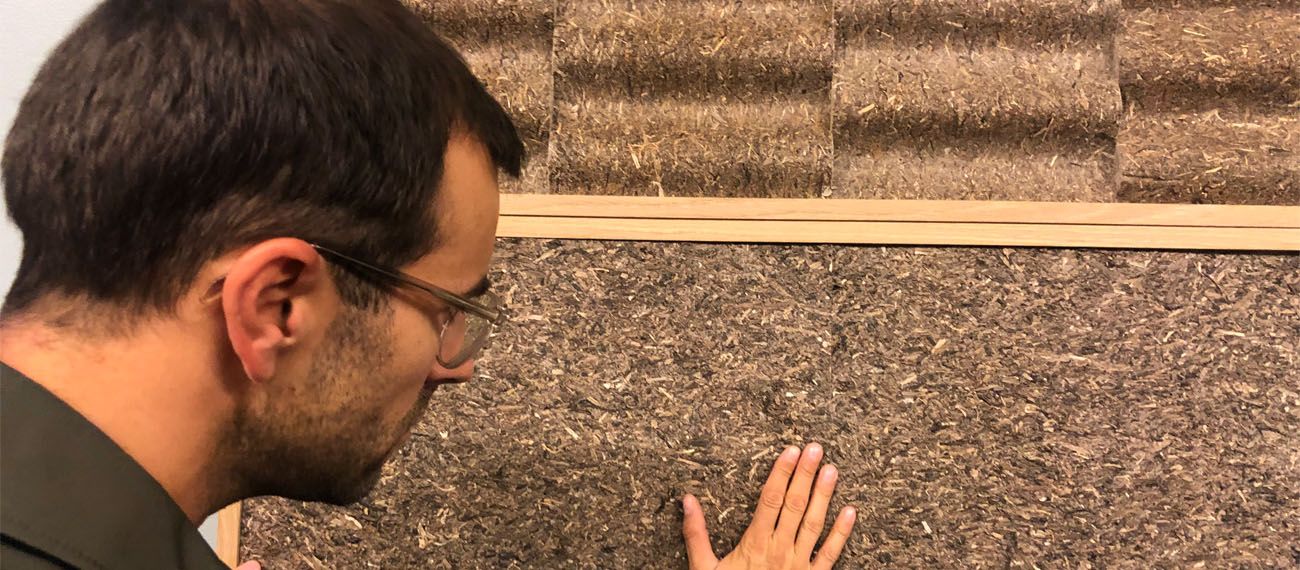
Søuld: building materials made of eelgrass
The company Søuld is a start-up based on producing building materials made of eelgrass
The Company
The company Søuld is a start-up based on producing building materials made of eelgrass. The start-up is run by two design engineers and two architects.
Søuld has brought traditional building practices into today’s construction industry by developing sustainable acoustic mats made from eelgrass. The products are based on fibres from the eelgrass sea plant, which grows naturally along the northern coasts - a renewable resource that can be recycled and is completely free of harmful substances.
The eelgrass acoustic mats are based on centuries of experience and use of eelgrass as a traditional building material at the island of Læsø. Eelgrass acoustic boards are a result of the meeting between a natural, proven and tested raw material and new technologies, which together imbue the product with good technical properties and environmentally positive impacts.Product
Søuld acoustic products consist of 90% eelgrass plus incorporated thermoplastic (as a fire retardant). The combination is simple, yet innovative. Eelgrass fibres lend the product a heat-insulating, heat-accumulating and sound-absorbing structure, which is both mould and fire resistant due to the natural content of sea salts and minerals in the fibres. The thermoplastic is used as a binder and provides the boards with strength and flexibility. It is also the thermoplastic that ensures that the acoustic boards can be recycled in a circular flow after end of use.
The acoustic products from Søuld comply with standards for Design for Disassembly.
Eelgrass is a naturally occurring plant in Denmark that grows in saltwater along the coasts. The leaves of the plant are released every year in late summer and washed ashore in large quantities, where it can be collected and used for e.g. the production of building materials. Eelgrass has several unique environmental benefits, including containing CO2 and nutrients from the sea and atmosphere.
Using eelgrass in the building industry can therefore contribute to turning building stock into potential CO2 banks.
See more at www.sould.dk



